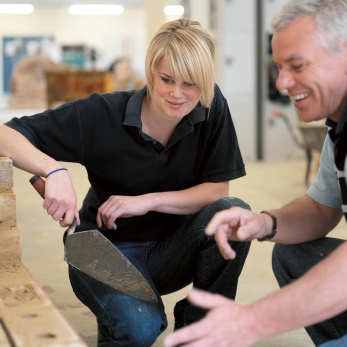
Sirrond Ltd: Providing Work Experience Solutions in Enfield, Barnet, Herts and North London -

Traineeships help young people get skills for work
Every parent wants their child to succeed in school and move on to work and independence. However not every child thrives in formal education, and some leave school lacking the qualifications and skills that employers need. For these children, there is now the option of a Traineeship -
A Traineeship is an education and training programme with work experience that is focused on giving young people the skills and experience that employers are looking for. At its core are work preparation training, English and maths for those who need it, and a high quality work experience placement.
Traineeships are designed for young people aged 16 to 23 (inclusive)1 who are interested in getting into work but who may lack the education or skills employers are looking for.
Recent research shows that young people can lack the skills expected in the workplace –nearly a third of employers are dissatisfied with the English and maths abilities of school and college leavers, and 35% report that they have had to provide remedial training for new recruits.
Traineeships aim to combat this by combining essential work skills training, English and maths support if required, with a high quality work experience placement to prepare young people for an Apprenticeship or other job. At the end of the work experience, trainees receive a reference and an exit interview – or a job interview if a role becomes available with the company.
Karen Woodward, Director of the National Apprenticeship Service, says: “Traineeships will be a vital stepping stone for school leavers and young people who are keen to enter the world of work but feel unprepared. The experience and skills they gain will help them in the short and long term as they become more employable and prepare for their future career, whether the next step is an Apprenticeship which will offer a job with great training, or simply a job. They will provide a clear path for many school leavers and a way for businesses to build the talented workforce they require.”
What does a Traineeship involve?
Each Traineeship will last from six weeks up to a maximum of six months and will provide essential work preparation training, English and maths support (required for anyone who doesn’t already have a GCSE A*-
Businesses design and run their Traineeships themselves or in partnership with the best training organisations, all of whom are rated by Ofsted as Outstanding or Good. Large employers and smaller local businesses are all being encouraged to participate to enable young people to gain the necessary skills across different sectors.
What are the benefits of Traineeships?
Traineeships give young people the skills they need to secure a job and succeed in employment, with the content tailored to people’s individual needs. The work preparation training will ensure young people develop the abilities and confidence needed to take the first step in their career, such as an Apprenticeship, while the English and maths support will increase employability and earning potential.
Research shows that people with a GCSE A*-

At the end of the work experience placement, trainees receive a job interview if a role becomes available with the company or an exit interview and reference.
While employers are not required to pay trainees, they will be encouraged to support with meals and travel costs and all training will be funded by the Government.
Why are Traineeships necessary?
According to a study by ICM Research 60% of unemployed young people say they are worried about not being able to get a job in the future and less than four in ten (38%) believe they are ready for work. Employers are at the heart of Traineeships and trainees could be learning from high quality employers.
According to the UK Commission for Employment and Skills (UKCES) skills shortages in many school leavers have, over the past two to three years, resulted in less than a quarter of businesses recruiting young people directly from education. Traineeships will help solve these problems by putting employers at the centre of the programme to ensure the training provided gives young people the skills and experience they need to become more employable.
What’s the first step towards getting a Traineeship?
Young people can register on the National Apprenticeship Service vacancies website, apprenticeships.org.uk, which will advertise Traineeship opportunities. Alternatively, they can also contact their local college or training provider direct and any young people claiming Jobseeker’s Allowance can speak to their Jobcentre adviser for more information about Traineeships.
The National Careers Service provides a free service which supports, encourages and inspires people at every stage of their working life, providing the right tools and advising on the right steps to take at the right time. Visit nationalcareersservice.direct.gov.uk or call 0800 100 900 and they will be able to advise on whether a Traineeship is the best option, or whether an alternative training programme might be more appropriate, and help with the application process.
Traineeships are a stepping stone to future success for young people, businesses and the wider economy. Please visit apprenticeships.org.uk with your son or daughter to or call 08000 150 600 to find out how Traineeships can help them get ready for work.
1The age range ‘16-
Traineeships - a Guide for Parents
